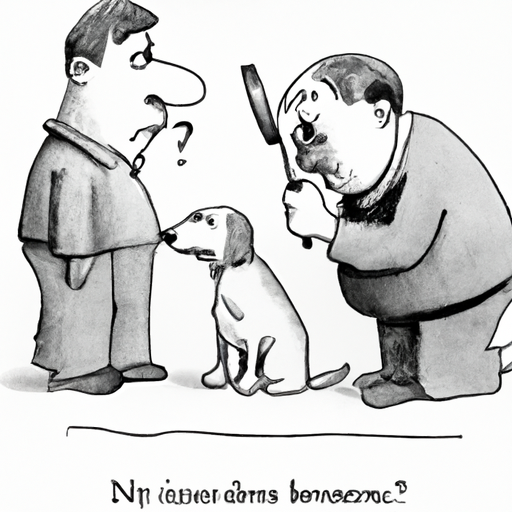As a pet parent, you’ve probably found yourself asking, “why is my dog’s nose always wet?” There’s something fascinating about the cold, wet nose that greets you every morning, nudges you for a pat, or sniffs out the treats you’ve hidden. While it’s generally considered a sign of a healthy dog, the constant wetness of a dog’s nose can be quite mystifying. In this article, we’ll delve into the scientific reasons behind this canine characteristic and address some related concerns.
Contents
- The Science Behind Your Dog’s Wet Nose
- Health Indications of a Wet Nose
- Differences in Wetness
- When to Be Concerned
- Frequently Asked Questions
Key Takeaways
- Dogs have wet noses due to a combination of gland secretion and licking.
- The moisture on a dog’s nose helps improve their sense of smell.
- A dry nose doesn’t necessarily mean a sick dog.
- Always consult a vet if you notice abnormal changes in your dog’s nose.
The Science Behind Your Dog’s Wet Nose
Dogs have a unique feature known as rhinarium, the bare, wet surface around the nostrils. This area contains sweat glands that produce a thin layer of moisture, which helps to absorb scent chemicals. Additionally, dogs often lick their noses, which further adds to the wetness. This article by the American Kennel Club explains it in detail.
But that’s not all. Dogs have an extraordinary sense of smell, and the dampness on their noses helps to dissolve and analyze the scent particles better. When your dog sniffs, they’re not just inhaling air but also collecting more information about their environment than we could ever perceive.
Health Indications of a Wet Nose
A wet nose is generally a sign of a healthy, hydrated dog, but it’s not a foolproof health indicator. The moisture level can fluctuate due to various factors, such as weather, activity level, and the dog’s licking habits. It’s quite normal for a dog’s nose to be dry after waking up or spending time in the sun.
However, if you notice a persistent dry, cracked, or unusually wet nose, it could be a sign of health issues. For instance, a very wet nose might indicate a runny nose, which could be a sign of respiratory infection. In such cases, it’s best to consult your vet.
Differences in Wetness
Not all dogs have equally wet noses. Some breeds naturally have drier noses than others. If you’re curious about the typical nose conditions for different breeds, you can check out this guide on Onetopdog.
Moreover, the wetness can vary throughout the day. For instance, your dog’s nose might be extra wet after a sniffing session, thanks to the additional mucus produced to trap scent particles. On the other hand, if they’ve been sleeping or inactive, their nose might feel drier as they haven’t been licking it frequently.
When to Be Concerned
While a wet nose is usually a good sign, it’s important to observe your dog’s overall behavior and other symptoms. If you notice changes in your dog’s nose along with other symptoms like loss of appetite, lethargy, or coughing, it’s time to take them to the vet. This onlinedogcare guide can help you understand when it’s time to worry.
Remember, you know your pet best. If something doesn’t feel right, it probably isn’t. Always trust your instincts and seek professional help when necessary.
Frequently Asked Questions
-
Why is my dog’s nose wetter than usual?
If your dog’s nose is wetter than usual, they might be producing extra mucus to enhance their sense of smell or due to a respiratory infection. If the wetness is accompanied by other symptoms, consult your vet. -
Is a dry nose a sign of a sick dog?
Not necessarily. A dog’s nose can be dry due to many reasons like exposure to heat, less licking, or after a nap. However, a persistently dry, cracked, or chapped nose can indicate a health issue. -
Why does my dog keep licking his nose?
Dogs often lick their noses to keep them clean and moist. But excessive licking might be a sign of discomfort or illness. If you notice this behavior along with other changes, it’s best to consult a vet.
In conclusion, the wet nose of your furry friend is a fascinating feature that aids their impressive olfactory abilities. But remember, it’s not an absolute health gauge. Always keep an eye on their overall well-being and consult your vet if you notice anything unusual. For more dog health tips, visit Onetopdog.



